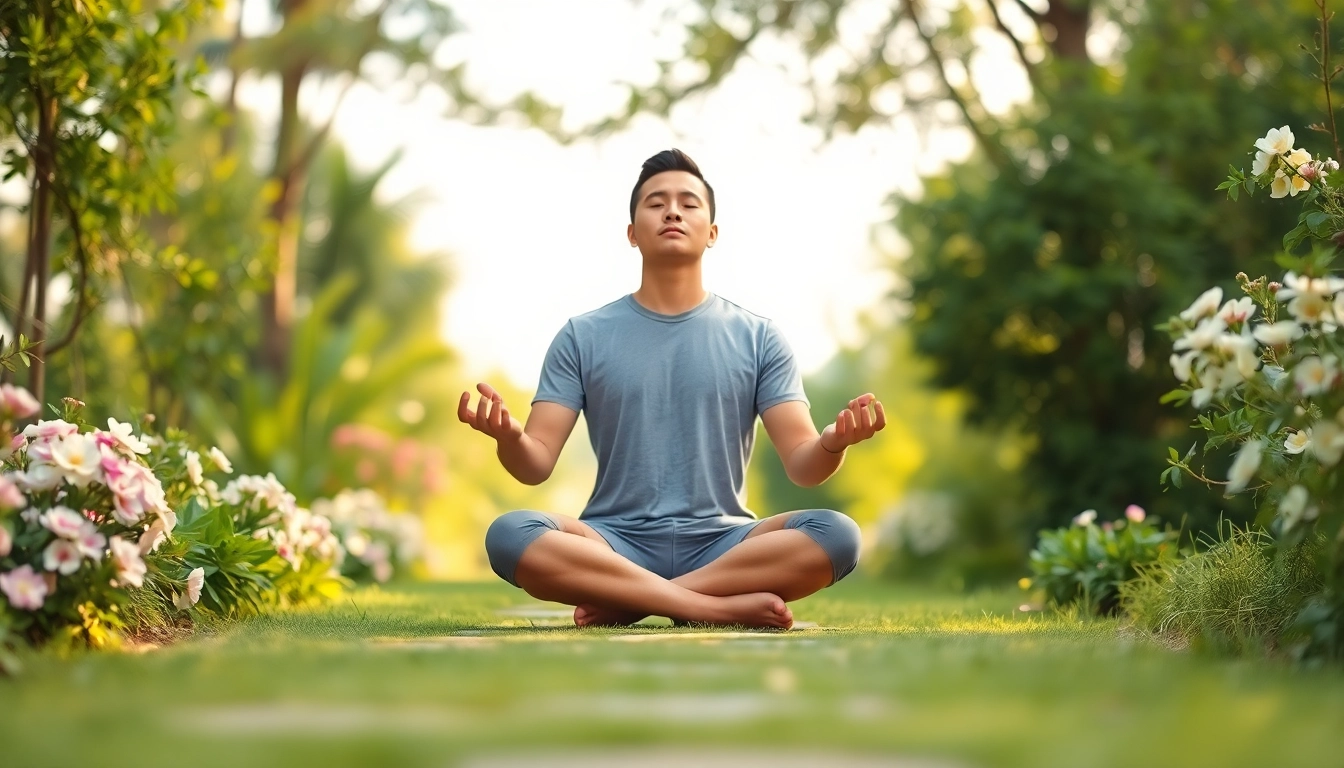Understanding Anxiety: Symptoms and Triggers
What is Anxiety?
Anxiety is a natural response to stress, characterized by feelings of tension, worried thoughts, and physical changes like increased blood pressure. While anxiety is a common experience for many, it can become a disorder when it interferes with daily life. Anxiety disorders affect millions worldwide and encompass a range of conditions, such as generalized anxiety disorder, panic disorder, and social anxiety disorder. Understanding the nuances of anxiety and how it affects individuals can pave the way for effective coping strategies and a supportive environment. These strategies often include dealing with anxiety through various techniques and support systems.
Common Symptoms of Anxiety
The symptoms of anxiety can be vast and varied, often affecting both the mind and body. Common indications of anxiety include:
- Physical Symptoms: These may consist of rapid heartbeat, sweating, trembling, fatigue, and muscle tension.
- Emotional Symptoms: Individuals often experience restlessness, feelings of dread, or irritability.
- Cognitive Symptoms: These involve difficulties concentrating, racing thoughts, or excessive worry about future events.
- Behavioral Symptoms: Avoidance of certain situations or withdrawing from social interactions is common.
Recognizing these symptoms can help in seeking appropriate help and implementing strategies for managing anxiety effectively.
Identifying Personal Triggers of Anxiety
Understanding personal anxiety triggers is crucial in effectively managing anxiety. Triggers can vary widely among individuals and may include:
- Stressful life events such as job loss, relationship breakdowns, or health problems.
- Situations that provoke fear, such as public speaking or flying.
- Environmental factors like crowded spaces, or dark places.
- Internal triggers like negative thoughts or reminders of past trauma.
Keeping a journal to track when anxiety surfaces can provide insight into personal triggers and help in developing strategies to cope.
Techniques for Dealing with Anxiety: Practical Approaches
Breathing Techniques and Mindfulness Practices
Breathing techniques and mindfulness practices are among the most effective methods for reducing anxiety. These techniques can slow the heart rate and promote relaxation. Here are some effective methods:
- Deep Breathing: Inhale deeply through your nose, hold for a moment, and then exhale slowly through your mouth. Repeat this several times.
- Counting Breaths: Focus on your breath, counting each inhale and exhale up to ten, then start over.
- Mindfulness Meditation: Dedicate a few minutes each day to sit quietly, focusing on the present moment and letting go of distracting thoughts.
Practicing these techniques regularly can help regulate anxiety responses during stressful situations.
Physical Activity: Exercise as a Tool Against Anxiety
Engaging in regular physical activity is a proven method for reducing anxiety. Exercise helps to release endorphins, hormones that relieve stress and improve mood. Here are some tips for incorporating physical activity into your routine:
- Start Small: Aim for 15-30 minutes of moderate exercise a few times a week and gradually increase frequency and intensity.
- Find Activities You Enjoy: Whether it’s walking, cycling, swimming, or dancing, choosing enjoyable activities increases the likelihood of sticking to them.
- Consider Group Classes: Engaging in group activities or classes can add a social component, making exercise easier and more enjoyable.
Creating a consistent exercise routine can foster both physical health and mental well-being, becoming an essential part of your approach to dealing with anxiety.
Relaxation Techniques: Meditation and Yoga
Meditation and yoga are effective relaxation techniques that promote peace and mindfulness. They help reduce symptoms of anxiety while enhancing overall mental health. Here are some practices to consider:
- Guided Meditation: Use apps or online resources for guided sessions to help focus and calm the mind.
- Yoga: Practicing yoga combines physical movement with deep breathing and mindfulness, which can greatly reduce anxiety levels.
- Progressive Muscle Relaxation: This involves tensing and relaxing different muscle groups in your body to ease tension and promote a state of calm.
Incorporating these relaxation techniques into your daily routine can help counteract anxiety and enhance your overall well-being.
Building a Support System for Dealing with Anxiety
Engaging Friends and Family for Support
Having a supportive network of friends and family is vital in managing anxiety. Open communication is key. Here are strategies for engaging loved ones:
- Talk About Your Feelings: Share your experiences with family or friends who are understanding and willing to listen.
- Plan Joint Activities: Spending time together can help reduce isolation and foster feelings of connection.
- Educate Others: Help your loved ones understand anxiety by sharing information and resources, enabling them to provide better support.
A strong support system can provide comfort, reassurance, and encouragement, making it easier to navigate through anxiety.
The Role of Professionals in Managing Anxiety
When self-help strategies are not sufficient, seeking professional guidance is essential. Mental health professionals can offer valuable support through:
- Cognitive Behavioral Therapy (CBT): This therapy focuses on identifying and restructuring negative thought patterns that may contribute to anxiety.
- Exposure Therapy: Gradually exposing individuals to their sources of anxiety can help in desensitization and reduction of fear.
- Group Therapy: Engaging with others who face similar challenges in a shared space can provide insights and comfort.
Seeking professional help can provide tailored strategies and equip individuals with tools necessary for effective anxiety management.
Support Groups: Finding Community
Support groups provide a sense of community for individuals facing anxiety. They offer a platform to share experiences, coping mechanisms, and receive encouragement. Here are some benefits of attending support groups:
- Shared Experiences: Hearing from others who understand your struggles can foster a sense of belonging.
- Learning from Others: Sharing and discussing various coping strategies can introduce new perspectives and solutions.
- A Safe Space: Support groups provide a non-judgmental environment where participants can express their thoughts and feelings freely.
Finding the right support group can strengthen one’s ability to manage anxiety effectively.
Long-Term Strategies for Dealing with Anxiety
Establishing Healthy Routines
Creating and maintaining a healthy daily routine can significantly impact anxiety levels. A well-structured routine helps promote stability and predictability, which can be soothing. Essential components of a healthy routine include:
- Regular Sleep Patterns: Prioritize getting enough sleep by going to bed and waking up at the same time every day.
- Healthy Eating Habits: Nourishing your body with balanced meals can improve both physical and mental health.
- Scheduled Downtime: Ensure that your routine includes time for relaxation and enjoying activities that uplift your spirit.
Establishing a consistent and healthy daily routine can create a solid foundation for managing anxiety effectively.
Practicing Self-Care and Self-Compassion
Self-care and self-compassion are crucial components in the journey of dealing with anxiety. Prioritizing your mental and physical well-being can significantly influence anxiety levels. Strategies for self-care include:
- Mindfulness Practices: Engage in mindfulness techniques regularly to cultivate awareness and reduce stress.
- Engaging in Hobbies: Spend time doing things you love, which can serve as a distraction and source of joy.
- Practicing Self-Compassion: Be gentle with yourself; understand that it’s okay to have off days and that progress may ebb and flow.
Emphasizing self-care can aid in creating a positive feedback loop of improved mental health and reduced anxiety.
Incorporating Nutrition and Lifestyle Changes
What you put into your body affects your mood and anxiety levels. Incorporating nutritional and lifestyle changes can be an influence on mental health. Consider these changes:
- Balanced Diet: Focus on foods that are low in sugar and rich in omega-3 fatty acids, antioxidants, and fiber.
- Hydration: Staying hydrated is key for mental clarity and overall health.
- Limit Caffeine and Alcohol: High levels of caffeine and alcohol consumption can exacerbate anxiety symptoms.
Being mindful of nutrition and lifestyle choices can foster a healthier state of mind.
Seeking Help: When to Consider Professional Advice
Recognizing Severe Anxiety Symptoms
Understanding when to seek help for anxiety is crucial. Severe symptoms may include persistent worry, panic attacks, or avoidance of daily activities. If anxiety disrupts your daily life or if self-help strategies are not alleviating symptoms, it is important to consider professional advice.
Different Therapy Options for Anxiety
When seeking professional help, there are several therapeutic options available:
- Cognitive Behavioral Therapy (CBT): Focuses on reshaping negative thought patterns and behaviors.
- Dialectical Behavior Therapy (DBT): Combines CBT with mindfulness strategies, particularly useful for emotional regulation.
- Eye Movement Desensitization and Reprocessing (EMDR): Effective for those with a history of trauma contributing to anxiety.
Connecting with a therapist will help determine the best fit for individual anxiety needs.
Understanding Medication Role in Anxiety Management
In some cases, medication may be prescribed to help manage anxiety symptoms. This can include:
- Antidepressants: Often used to manage anxiety due to their mood-stabilizing effects.
- Anti-Anxiety Medications: These drugs can provide short-term relief for acute anxiety symptoms.
- Beta-Blockers: Typically used to control physical symptoms of anxiety, such as rapid heart rate during stressful situations.
Consulting with a healthcare professional is essential to determine the most appropriate treatment plan.



